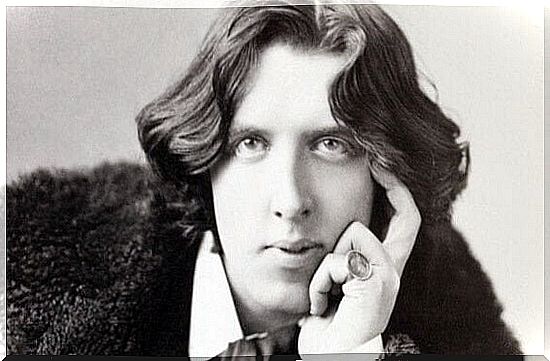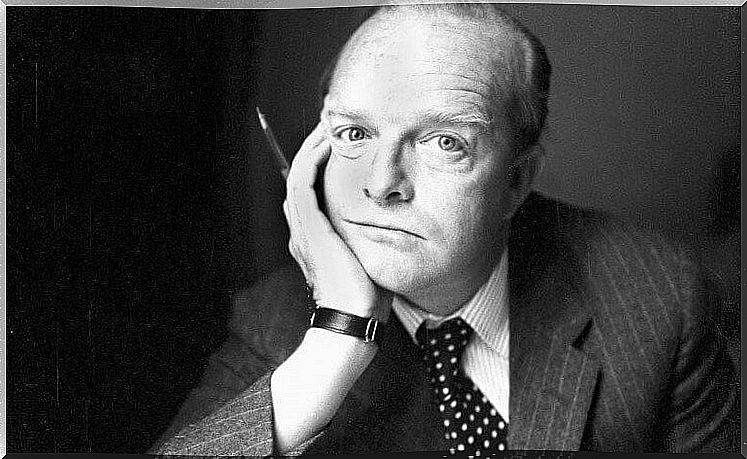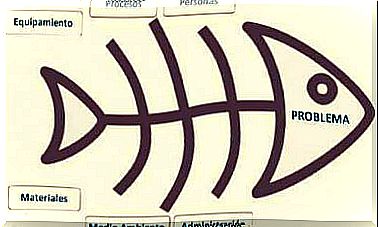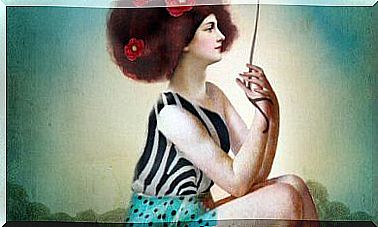5 Great Lessons From Wise Men

The great lessons of wise men are often told in the form of stories or anecdotes. Other times they are conveyed by concrete statements about different aspects of life. Always, in any case, they are the result of difficult experiences, arduous reflections and an unusual sensitivity.
The lessons of wise men have an essential purpose: to remind us of the great values that should guide our actions. Sometimes we forget that life only acquires meaning from the principles that drive it and the noble purposes that guide it.
So we have selected five of these great lessons from the wise men. They are sentences and facts that reveal small and big truths. Here they are, so you can enjoy and learn from them.
1 . Capote is one of the great lessons of the wise men
Truman Capote doesn’t need any introductions. He was one of the greatest American writers. His work “A Sangue Frio” is considered the inauguration of a new genre in which fiction is confused with non-fiction. However, few people know that much of his talent was derived from an impressive discipline.

One of his great friends, Paul Bowles, said that one day in 1949 he told him and other colleagues that he had already planned his literary program for the next 20 years. Everyone was surprised and it certainly seemed somewhat elusive. However, over time he developed this program, step by step, line by line, just as he had conceived. It is one of the great virtues of geniuses: perseverance and discipline.
two . Tod Browning, the silent movie genius
Tod Browning is the author of another such lesson from wise men. Before becoming famous, Browning was very poor. He had to earn a living doing various activities. One of the activities that gave him resources to live was the “undead” of a circus.
The routine consisted of standing still. They called a doctor who declared him dead. Then they put him in a coffin and buried him. He had to stay there for 24 hours, not moving. He survived thanks to a hidden ventilation system and small food balls he took with him. In the beginning I almost died from panic. So, he took advantage of these long journeys to loosen the reins of his imagination and project his future.
3 . Helen Keller and her life lesson
The great lessons of wise men also include stories of extraordinary women like Helen Keller. Your name is well known, but let’s remember your story. When she was just 1.5 years old, she contracted a disease that left her blind and deaf and prevented her from speaking.
Thanks to a teacher who believed in her, she was able to develop a system for communicating with the world. Thus, he became the first deaf/blind person to earn a college degree, no less than at Harvard. He has written several books and over 400 articles. When asked about her great resilience, Helen responded: “When one door of happiness closes, another opens; but many times we don’t see it because we keep looking at the closed door”.
4 . Oscar Wilde and the conventions
Oscar Wilde was one of the most acidic critics of social convention. He was convinced that those around him were full of hypocrisy and that they acted more out of what others would say than what they really felt. He was also sure they were so submerged in their own world that they didn’t even hear.
To prove his theory, he took advantage of an occasion when he was invited to a party. Deliberately he arrived late. When the hostess received him, Wilde said, “I’m sorry. I’m late because I had to bury an aunt I just killed.” Not caring, the woman replied, “Don’t worry. The important thing is that you have arrived”.
5 . Churchill and the sense of humor
Winston Churchill was one of the greatest men in history. Not only did he personally direct the fate of the United Kingdom during World War II, he was also a great writer, who even won the Nobel Prize for Literature. However, one of his most striking personality traits is his elegant and constant sense of humor. Something rare in characters who achieved such glory.
There are hundreds of anecdotes about Churchill’s sense of humor. One says that General Montgomery received a heartfelt tribute for defeating Rommel in Africa. In his acceptance speech, Montgomery said with great pride: “I don’t smoke, I don’t drink, I don’t swindle and I’m a hero,” to which Churchill replied, “I smoke, I drink, I slack and I’m his boss.”
All these lessons from wise men and wonderful women show us that human beings have wonderful qualities. They are able to overcome adversity, but also to laugh at it. The wisest are precisely those who manage to extract positive contributions from the most difficult times.









